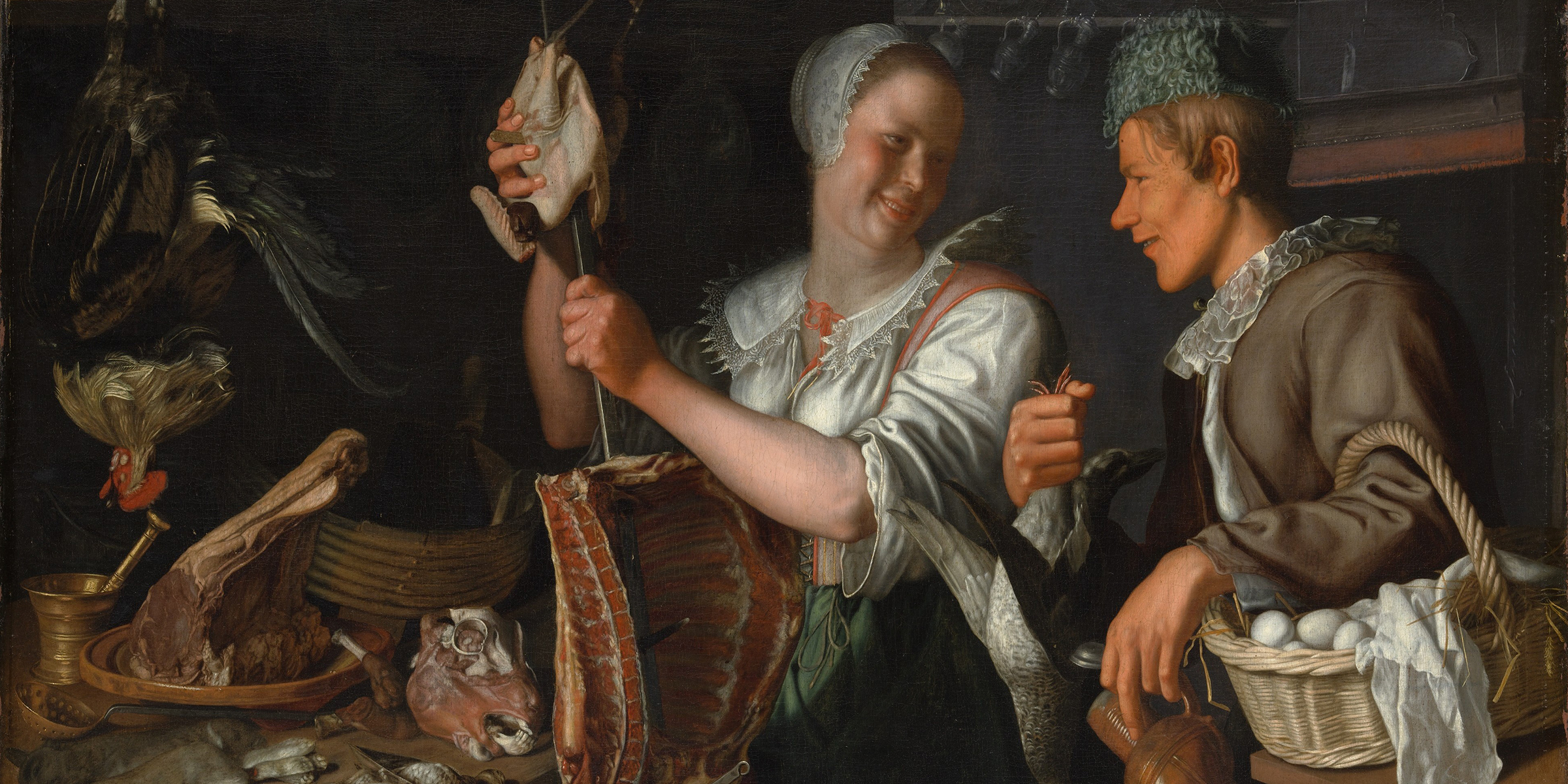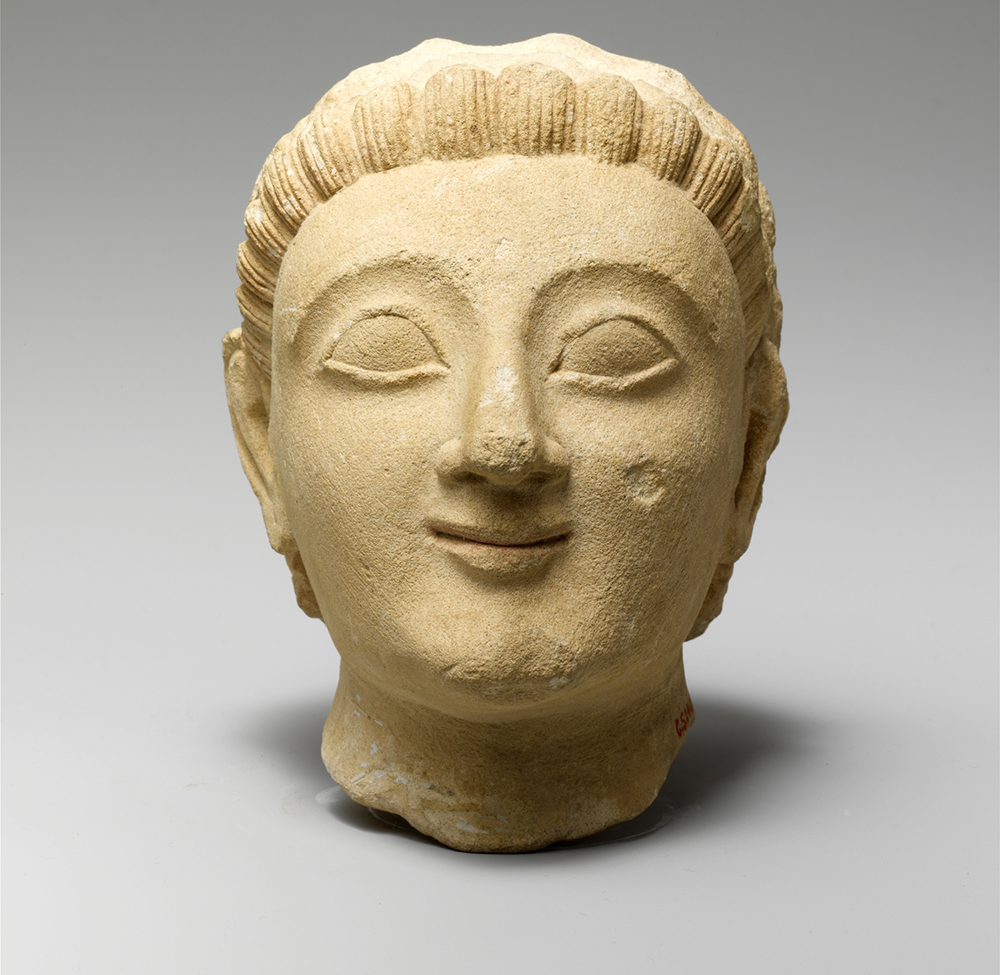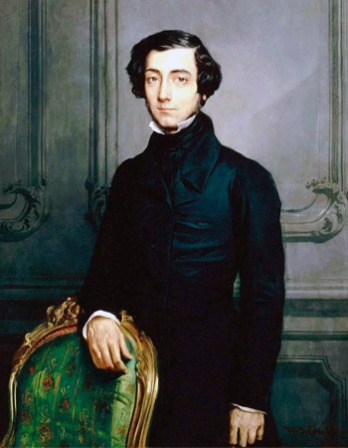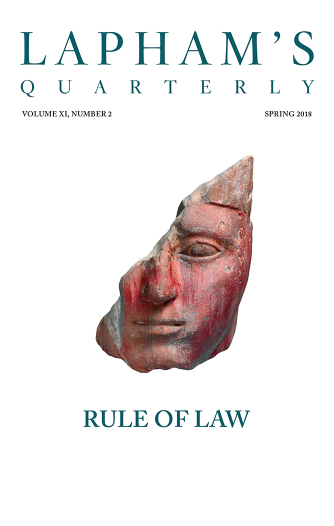A lifetime of happiness! No man alive could bear it: it would be hell on earth.
—George Bernard Shaw, 1903The Impossible Dream
How have we come to build a whole culture around a futile, self-defeating enterprise: the pursuit of happiness?
By David Wootton

Declaration of Independence, by John Trumbull, 1819. U.S. Capitol.
We hold these truths to be self-evident, that all men are created equal, that they are endowed by their Creator with certain unalienable Rights, that among these are Life, Liberty, and the pursuit of Happiness.
—The Declaration of Independence
These words, from Thomas Jefferson’s Declaration of Independence, are so familiar that it is easy to assume their meaning is obvious. The puzzle lies in the assertion that we have a right to pursue happiness. John Locke, in his Two Treatises of 1690, said we are all created equal and have inalienable rights, including those to life and liberty. But for Locke the third crucial right was the right to property. In Locke’s Essay Concerning Human Understanding, also published in 1690, he wrote about the pursuit of happiness, but it follows from his account there that there can be no right to pursue happiness because we will pursue happiness come what may. The pursuit of happiness is a law of human nature (of what we now call psychology), just as gravity is a law of physics. A right to pursue happiness is no more necessary than a right for water to run downhill.
Jefferson meant, I think, that we have a right to certain preconditions that will allow us to pursue happiness: freedom of speech, so we can speak our minds and learn from others; a career open to talents, so our efforts may be rewarded; freedom of worship, so we may find our way to heaven; and a free market, so we can pursue prosperity. Read this way, Jefferson’s right to the pursuit of happiness is an elaboration of the right to liberty. Liberty means not only freedom from coercion, or freedom under the law—or even the right to participate in politics—it is also a right to live in a free community in which individuals themselves decide how they want to achieve happiness. The “public happiness” to which Jefferson aspired can therefore be attained, since public happiness requires liberty in this expanded sense.
Jefferson was well aware that being free to pursue happiness does not mean that everyone will be happy. And yet we trick ourselves into thinking we know what is needed to be happy: a promotion, a new car, a vacation, a good-looking partner. We believe this even though we know there are plenty of people with good jobs, new cars, vacations, and attractive partners, and many of them are miserable. But they, too, imagine their misery can be fixed by a bottle of Pétrus or a yacht or public adulation. In practice, our strategies for finding happiness are usually self-defeating. There’s plenty of empirical evidence to suggest that much of what we do to gain happiness doesn’t pay off. It seems that aiming at happiness is always a misconceived project; happiness comes, as John Stuart Mill insisted, as the unintended outcome of aiming at something else. “The right to the pursuit of happiness,” wrote Aldous Huxley, “is nothing else than the right to disillusionment phrased in another way.”
This problem is particularly acute in our modern consumer economy, in which political institutions, the economic system, and popular culture are all now primarily dedicated to the pursuit of happiness. This has had the perverse effect of creating a world of frustration and disappointment in which so many discover that happiness is beyond their grasp. The economy fails to deliver for the majority but urges everyone to spend beyond their means. We engage in “retail therapy,” spending for the momentary gratification of acquisition. We encounter advertisements that wrap themselves around us like a blizzard of snow, each promising that if we spend, and go on spending, we will be rewarded with endless delights. This spending helps drive climate change, which threatens to make the planet uninhabitable. Moreover, our sense of who we are seems to be increasingly detached from reality; we live out fantasy versions of ourselves, playing our own private form of air guitar. To constantly pursue something you can never catch is a form of madness. We have built this madness into the very structure of our lives. Every society in the world aims at economic growth, and every society encourages the endless accumulation of wealth. When it comes to wealth, we have great difficulty in saying enough is enough, because it is hard to know when we can safely say we have enough to face down every possible catastrophe.
How then have we come to build a whole culture around an impossible, futile, self-defeating enterprise?
The word happy in English originally simply meant lucky. Are you lucky? It’s always too soon to tell, till death closes your account. For the Greeks and Romans, happiness was linked to success: the happy man (barbarians, slaves, and women hardly counted) was someone good at living up to the ideals of manhood. Virtue, happiness, and success were inextricably intertwined, so that in the end they amounted to the same thing, the ultimate objective. An impartial observer could best judge if someone was virtuous, happy, or successful, because the standards were objective, not subjective. And just as one should withhold judgment on someone’s luck until they are safely dead, so the Greeks held that you could really tell if someone had been happy only when they were securely buried.
This all changed during the seventeenth century, when a few thinkers, Thomas Hobbes foremost, redefined happiness as a subjective experience, an emotional state. “The felicity of this life,” Hobbes wrote in 1651, does not consist, as the Epicureans claimed, “in the repose of a mind satisfied”:
For there is no such finis ultimus (utmost aim) nor summum bonum (greatest good) as is spoken of in the books of the old moral philosophers. Nor can a man any more live whose desires are at an end than he whose senses and imaginations are at a stand. Felicity is a continual progress of the desire from one object to another, the attaining of the former being still but the way to the latter.
To be happy, in Hobbes’ view, was to succeed in acquiring pleasurable experiences. And each individual was the sole judge of what is pleasurable. In order to acquire the means to future pleasure, we seek what Hobbes called power—money, status, influence, and friendship are all forms of power. There is no limit to our quest for pleasure and power, just as there is no limit to the merchant’s quest for money; Hobbes took Niccolò Machiavelli’s account of politics and generalized it as an account of human life. Machiavelli said human beings have insatiable appetites, and Hobbes constructed his psychology, moral philosophy, and political theory around this perception. We all, he claimed, endlessly compete with one another over limited resources. This statement seems obvious to us, so we are surprised to discover that the word competition was a new one in Hobbes’ time, as was the idea of a society in which competition is pervasive. In the pre-Hobbesian world, ambition, the desire to get ahead and do better than others, was universally condemned as a vice; in the post-Hobbesian world, it became admirable, a spur to improvement and progress.
The appetite for pleasure, as understood by Hobbes, has two disturbing features. First, it never ends until death. There is no stable condition that counts as being happy; there are only fleeting experiences that must be renewed constantly. We are (though Hobbes doesn’t use the phrase) in an endless pursuit of happiness, and in order to attain happiness, we are in pursuit of the power and wealth that we believe will make it possible. Second, we take an imaginary pleasure now in our future pleasures. And since happiness is subjective, imaginary pleasures are just as authentic as real ones. Thus fantasy and reality become interchangeable.

Kitchen Scene (detail), by Peter Wtewael, c. 1620. The Metropolitan Museum of Art, Rogers Fund, 1906.
Hobbes’ account of happiness was radically modified in the eighteenth century by the introduction of sympathy. Hobbes, following Lucretius, claimed that the sight of a ship on the rocks, with its passengers and crew drowning, would give us pleasure if we were on dry land, for we would take delight in our own safety. Eighteenth-century thinkers insisted that we take pleasure in our friends’ pleasures; their suffering causes us suffering. When we see a ship on the rocks, we imagine ourselves drowning, rather than celebrating our own security. Sympathy thus turns Hobbesian human beings, who are entirely egoistic, into sociable creatures. But self-gratification is still the only possible motive for our behavior; we just locate a new source of pleasure in the happiness of those close to us. Self-sacrifice becomes a paradoxical concept: everything we feel, everything we do, even to help one another, is imbued with selfishness. (The word selfish was also new in Hobbes’ time.)
The ancient philosophers sought to subordinate passion to reason; the modern ones maintained that reason is a slave to passion. This new account of subjective motivation and experience was part of the invention of subjectivity, of what Locke called “consciousness” (a word he carefully defined, since he was using it in a new way, as “the perception of what passes in a man’s own mind”). The modern self is the product of this subjective turn, when the real self becomes internal (the mind in the English language; the soul in French, which has no word equivalent to mind), not some external thing embodied in robes of office or tools of a trade. The self becomes what the philosopher Gilbert Ryle called “the ghost in the machine,” the machine being our anatomical existence. Locke invented the modern philosophical problem of personal identity by arguing that memories make us who we are. If I woke up tomorrow in a different body, I would still be me if my memories were intact; but if I woke up in this body but with no memories, then I would no longer be the same person. Once subjective experience becomes the real self, knowledge is grounded in a process that “passes in a man’s own mind.” As Locke recognized, if we are trapped in our own consciousness, experience is our only source of knowledge, and pleasure is our only motivation. Moreover, as knowledge and experience become subjective and personal, individuals must rely on their own resources. Aristotle expected citizens to reflect the culture of their political community and to adopt the standards of their peers. But Locke imposes on each individual an obligation to find their own path to happiness.
As reason gave way to passion, interpersonal social realities were replaced by subjective experience. Religion, too, became a merely personal conviction, not an authoritative truth. The culture of happiness, itself a product of the culture of subjectivity, can flourish only in a relatively secular (or at least tolerant) society where there is a considerable freedom of choice. For Hobbes and Locke, the most obvious example of subjective preference is in the food we eat. I enjoy eating oysters; you like goat cheese. But of course in most societies you don’t get to choose what you eat; you make do with what you are given. Thus subjective preferences imply a world in which you can make individual choices, in which you inhabit some version of a consumer society. Monastic life is replaced by the culture of the coffeehouse or restaurant (the latter a French invention of the 1760s). We cannot separate subjective pleasure from subjective identity. Both depend on a social and economic order that allows individuals to pursue possibly eccentric preferences.
Implicit in the idea of subjective happiness is the idea that you ought to be able to perceive the difference between success and failure. If happiness is subjective, our claims to be happy or unhappy must be infallible. But if I look over my life, what I see is that sometimes I am happy, at other times not. A happy life must be one in which pleasure and satisfaction outweigh pain and dissatisfaction. It must be possible to measure pleasure and pain in order to establish whether one outweighs the other. The metaphor to which early modern thinkers revert is that of the account book: just as the bottom line of the ledger shows profit or loss, so we ought to be able to tell if we have experienced more pleasure or pain.
We associate the idea of a felicific or hedonic calculus with
Jeremy Bentham, but a hundred years earlier the French philosopher Pierre Bayle was arguing that in every life pain outweighs pleasure. (Think of the intense pain of a toothache in the days before painkillers, and compare it with the modest pleasure of a good meal or a sunny day.) If pain outweighs pleasure, then life is not worth living. Bayle thought that no one, given the choice, would live their life over again. He concluded that evil outweighs good in the world and so invented the modern problem that Gottfried Wilhelm Leibniz called “theodicy”: How can a good, omnipotent God maintain such a defective, painful world? Leibniz’s response was that since God is both omnipotent and benevolent, all the seeming evil in the world is there to serve a purpose. Although it might not look like it to us, this must be the best of all the possible worlds that God could have created. Leibniz thus sidestepped Bayle’s preferred solution: the only theology that makes sense, Bayle argued, is that of the Manichaeans, who said there were two gods at work, one good and one bad; for the most part, it is the evil god who shapes our lives.
Happiness does not dwell in herds, nor yet in gold.
—Democritus, 420 BCSo here we have Bayle’s (and our) fundamental difficulty. Our strategies for seeking happiness are usually self-defeating, and we cannot escape pain, suffering, and death. This is the ostensible subject of Voltaire’s novel Candide (1759), written as a defense of Bayle against Leibniz. Candide and Cunégonde are driven out into a world of violence, persecution, and catastrophe. It is the worst of all possible worlds. Any hope of reform is doomed to disappointment. And yet, finally, stranded on the shore of the Bosporus, they settle down to cultivate their garden, working hard but also savoring candied lemons and pistachios. They find happiness precisely when they stop looking for it. When you pursue happiness, it will flee from you, but if you are lucky, you can stumble upon it when you least expect.
Voltairean happiness always carried with it survivor guilt. Voltaire told Alexander Pope (who upheld Leibniz’s view that all is well in the best of all possible worlds) that he had been so badly sexually abused by the Jesuits at school that he would never get over it; there is every reason to believe him. When Voltaire wrote a little essay on happiness, his text was marred by references to pain and suffering, to dogs being vivisected. He couldn’t forget his own suffering or that of others—even, perhaps especially, when his subject was everything delightful. When we are happy we can’t help but remember all those (many of them dear to us) who are not. Candide and Cunégonde do not forget what they have seen. Voltaire—living in luxury at Les Délices in Geneva, rich, famous, and successful, planting cabbages and writing plays—took up the defense of those persecuted unjustly (the Calas family, the Chevalier de La Barre) not just because justice is a fine principle but also because he knew what cruelty felt like and could not forget it. In Candide, Voltaire never tries to tell you what it is like to be abused and ill-treated; he assumes that every reader will know. It’s happiness that needs to be evoked, not suffering.
Happiness, says Dubravka Ugrešić, began its advance on the masses in the nineteenth century, the age of industrial production; she deems it a peculiarly American product. Given its origins in Enlightenment psychology, America was, from the moment of its founding, dedicated to its pursuit. But is subjective happiness simply the by-product of a consumer society, one that follows urbanization and factory production? When Locke was writing, Chinese porcelain was an expensive rarity; a century later Wedgwood was mass-producing “china” for the new middle classes, Hogarth was producing engravings for them to hang on their walls, and new luxuries (coffee, tea, sugar, newspapers) were becoming widely available. This economic explanation for the triumph of happiness is superficially plausible, and it may to some extent be true—but as we have seen, the timing is wrong. The intellectual revolution preceded the social and economic revolution. The consumer society did not generate a preoccupation with happiness. The relationship ran in the other direction: the pursuit of happiness gave birth to the consumer society.

Limestone head, c. 525 bc. The Metropolitan Museum of Art, The Cesnola Collection, Purchased by subscription, 1874–76.
If the consumer society helps explain how subjectivity became self-evident, its roots must lie elsewhere. The best place to look is the religious conflict that scarred European life from the beginning of the Reformation in 1517 until the English Revolution of 1688, and continued in much of Europe until the age of Napoleon. This conflict drove those who invented the new subjectivity—Descartes, Hobbes, Locke, Bayle, even Voltaire—to spend a significant part of their lives in exile. In substituting happiness for honor, virtue, and piety, the new philosophy emphasized private choice and individual preference and sought to construct a bulwark against religious intolerance. This new subjectivity tackled the central problem exposed by the religious divisions of Europe: If theologians could not agree on salvation, what form of knowledge could be trusted? The Reformation led directly to skepticism, and to a new word from the ancient Greek: atheism. In this new world, unbelief was possible. Pleasure was the one thing whose importance nobody could deny.
If we want to trace the origins of the new attitude to happiness, we need to go back to Montaigne, who, caught up in the French Wars of Religion, wrote, “In my opinion, it is living happily, not, as Antisthenes said, dying happily, that constitutes human felicity.” He mocked the notion, so dear to those who believed in honor, virtue, or piety, that one could only determine if a man’s life had been (objectively) happy after he was dead—since once we are dead we cease to exist, it would follow that nobody could ever actually be happy. Of course, we have trouble grasping that death is the end. In one of his most transparently irreligious moments, Montaigne quotes Lucretius on how we persist in imagining that something of us will survive our own demise. But we can safely dismiss such fantasies. Living happily, feeling happy, was for Montaigne the true purpose of life. Montaigne loves to quote, but he quotes no one in support of this view because there was no one to quote; it was absolutely novel. And yet in the course of the next two centuries, it became self-evident. Montaigne’s idea of living happily, though, was surely different from ours. He may have imagined himself as a shopkeeper, inviting his reader into his arrière-boutique, but he lived in a world without advertising beyond the sign hanging outside an inn or a book dealer’s catalogue. In his world pleasure had not been commercialized as it has been in ours.
Thomas Jefferson lived in a world of slavery and pervasive inequality; he knew perfectly well that the world was not as it ought to be. But he believed, rightly, that a world in which people were free to pursue happiness would be one in which liberty would slowly spread, until all could benefit from it. What seemed evident to him would not have seemed remotely plausible to any educated person before the English Civil War. In 1690, Locke’s arguments were still peculiar and pioneering; by 1776 they had become, as they still are for us, self-evident. One day they will seem as strange as Aristotle’s do to us. But for now Jefferson is still our contemporary, as, for the philosophers of the medieval universities, Aristotle was still theirs. But there is an important difference between us and the founding fathers. They saw life, liberty, and the pursuit of happiness as the alternative to despotism and intolerance. We now can see that a society devoted to self-gratification may, in the end, destroy the conditions of its own existence.




